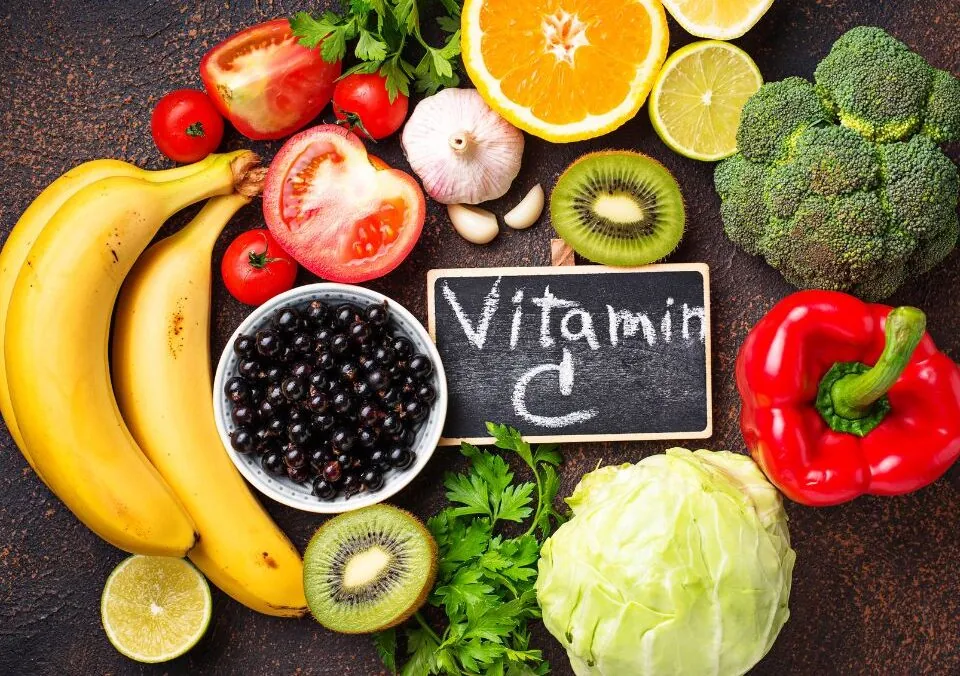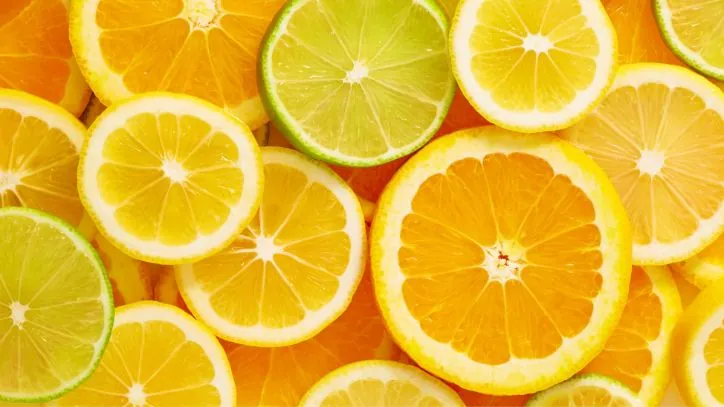Blog
What Does Vitamin C Actually Do?

Vitamin C, also known as ascorbic acid, has become synonymous with cold and flu prevention, especially during the winter months. Many people stock up on vitamin C supplements, under the belief that it will serve as a shield against illness. But is vitamin C really a miracle preventative? In this article, we’ll explore what vitamin C is, its numerous health benefits, and its true role in supporting our immune system.
Understanding Vitamin C
At its core, vitamin C is an essential nutrient, meaning our bodies require it to function optimally. However, as humans, we cannot synthesize it internally, so we must obtain it through our diet. This unique characteristic makes vitamin C especially important for everyone, but especially for those who may not consume sufficient fruits and vegetables.
According to registered dietitian Devon Peart, vitamin C plays a pivotal role in several bodily functions. Its primary functions include:
Protects Against Free-Radical Buildup
Free radicals are unstable molecules that can cause oxidative stress, leading to cell damage. This oxidative stress is linked to various chronic diseases, including cancer, heart disease, and arthritis. By neutralizing free radicals, vitamin C can help protect your body from these serious health issues. Studies have highlighted the antioxidant properties of vitamin C and its role in maintaining cellular health.
Promotes Eye Health
Vitamin C is crucial for maintaining healthy vision. It contributes to the prevention of cataracts and age-related macular degeneration, two common eye conditions that can lead to impaired vision and blindness. The American Academy of Ophthalmology suggests that consuming vitamin C-rich foods may reduce the risk of cataracts and support overall eye health.
Improves Iron Absorption
Iron is crucial for transporting oxygen in the blood, and its deficiency can lead to fatigue and anemia. Vitamin C enhances the absorption of non-heme iron (the type found in plant-based foods) when consumed together. This synergy can be particularly beneficial for vegetarians or individuals at risk for iron deficiency. Research published in the Journal of the American Dietetic Association supports this connection between vitamin C and iron absorption.

Encourages Collagen Growth
Collagen is a foundational protein in our skin, bones, and connective tissues. Vitamin C is essential for the synthesis of collagen, making it a vital nutrient for maintaining skin elasticity, wound healing, and overall structural integrity of the body. A study emphasizes the relationship between vitamin C and collagen production.
Aids in Wound Healing
The role of vitamin C in wound healing is closely linked to its function in collagen synthesis. When skin is injured, vitamin C helps promote healing by enhancing collagen formation. This has been backed by clinical reviews published in PubMed that show how higher vitamin C levels correlate with improved wound healing outcomes.
Topical Vitamin C Promotes Skin Health
As a potent antioxidant, vitamin C is also a popular ingredient in skincare formulations. It helps to combat skin damage caused by UV exposure and pollution, brightening skin tone and improving overall texture. Research noted in the journal Journal of Clinical and Aesthetic Dermatology suggests that topical application of vitamin C can lead to significant improvements in skin health.
Vitamin C and the Immune System
Vitamin C’s role in immune function is often overstated. Although many people believe that taking vitamin C can help prevent illnesses like the common cold, things are a bit more nuanced. According to Peart, while vitamin C does not eliminate the risk of getting sick, it may lessen the severity and duration of illnesses. This belief is supported by a review in the NIH, which found that while vitamin C supplementation does not prevent colds, it can reduce the duration of symptoms.
Research, including a study from the Cochrane Database, suggests that regular vitamin C supplementation can reduce the incidence of colds among individuals exposed to extreme physical stress. However, for the general population, the routine use of vitamin C for cold prevention is not recommended.
Recommended Daily Intake of Vitamin C
The recommended daily intake of vitamin C varies depending on age, sex, and life stages such as pregnancy or lactation. According to the National Institutes of Health, the guidelines suggest:
- Adult men: 90 mg/day
- Adult women: 75 mg/day
- Pregnant women: 85 mg/day
- Lactating women: 120 mg/day
These values represent the minimum amounts required to prevent deficiency. However, it is important to note that some health experts, including Peart, suggest that higher doses may be beneficial, particularly during periods of illness or physical stress. For example, doses up to 1,000 mg/day can help replenish levels in the body following physical stress or illness.
Food Sources of Vitamin C
Adding vitamin C to your diet is both easy and delicious. Some of the best food sources include:
- Citrus Fruits: Oranges, grapefruits, lemons, and limes are famous for their high vitamin C content.
- Berries: Strawberries, raspberries, and blueberries are excellent sources.
- Kiwi: This small fruit packs a significant vitamin C punch.
- Bell Peppers: Particularly the red and yellow varieties which have more vitamin C than green ones.
- Cruciferous Vegetables: Broccoli, Brussels sprouts, and cauliflower are also good sources.
- Leafy Greens: Spinach and kale contain moderate amounts of vitamin C.
Living in Arizona has its perks when it comes to accessing fresh produce. The region is known for its abundant citrus crops, especially during winter. As you promote your health by consuming vitamin C-rich foods, look for locally grown citrus options to support your community and enjoy peak freshness.
Conclusion
Vitamin C is an essential nutrient with numerous health benefits, from protecting against oxidative stress to enhancing skin health. While it may not be the definitive cure for preventing sickness, ensuring adequate intake—especially during times of physical stress—can support overall health and may help mitigate the severity of illness.
By consuming a diet rich in fruits and vegetables, especially those high in vitamin C, you can bolster your body’s defenses and enjoy the other myriad benefits this vital nutrient offers. For more information on locating locally grown produce and delicious recipes, check out the Fill Your Plate website.
In summary, maintaining a well-rounded diet rich in vitamin C is a great way to support your immune system and overall health. So, grab that citrus, load up on the greens, and enjoy the health benefits of vitamin C throughout the winter months and beyond!
By Heide Kennedy, Arizona Farm Bureau Communications Intern


















